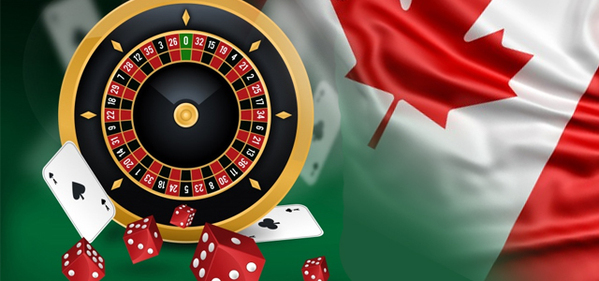Is Online Gambling Legal In Ontario
Posted : admin On 4/8/2022Gaming Opens Up. Before landmark changes to Canadian law in 1969 and 1985, gambling in Ontario was largely restricted to games of chance at summer fairs and parimutuel wagering on horse races. The Criminal Code of Canada is essentially the name given to a piece of legislation which is responsible for defining exactly what is legal and what is illegal in terms of gambling, both online and offline on Canadian soil.
- Yes, online gambling in Canada is perfectly legal, as long as you’re playing at a fully certified casino or sportsbook site that is based outside of the country. Just make sure you are of legal gambling age, which is 18 or 19 depending on the region you are in.
- In Canada it is illegal for online Casinos to operate within Canada; however, it is perfectly legal for local players to enjoy gambling at any site that is located offshore. There are also several local government-run legal online Casinos that were launched in order to generate regional funding. How We Pick the Best Canadian Legal Online Casinos.
- Is online gambling legal in Ontario? At the moment, the Ontario Lottery and Gaming Corporation (OLG) is the sole entity that is approved to offer online gambling in the province, via the PlayOGA.ca website. For this reason, many players are turning to offshore online casinos, spending around CA$110 million in this way.
Online gambling is often called a 'legal grey area,' but does that mean Canadians playing a few hands of internet poker in their living rooms should one day expect a SWAT team to crash through the door and seize their laptop?
The short answer is no. The longer answer, as might be expected, is less black and white.
Whether the issue is offshore gambling sites, file sharing, or Uber, the laws of the land are still taking time to catch up to the complexities of a connected world.
In Canada, gambling falls under provincial jurisdiction. That much is clear. The greyness stems from the internet, which doesn't pay attention to provincial boundaries. Thousands of offshore gaming sites are based in locales such as Gibraltar, the Isle of Man, and Cyprus, where gambling rules are wide open and governments welcome the tax revenue.
I don't think [the law] is grey.- Michael Lipton, lawyer
As for the legal status of these offshore operators in Canada, Michael Lipton, a lawyer and gaming law expert with Dickinson Wright in Toronto, says the issue is best understood by looking at the legality of offshore sites accepting bets from Canada, as well as what the law says about bets made by Canadians.
For gamblers, he doesn't see anything in Canada's Criminal Code that makes wagering through an offshore site illegal.
'As far as I'm concerned, you as a player aren't committing any criminal offence by being in a position where you are engaged with an offshore operator playing poker, playing slots, or whatever the case may be,' Lipton says.

Provincial jurisdiction
The trickier part of the equation is the legality of offshore operators taking bets from Canada.
Prior to the internet, the legal ins and outs of gambling were more straightforward. Each province determined its own rules for gambling, whether casinos, bingos, or lotteries. An exception is horse racing, which is regulated by the Canadian Parimutuel Agency, a unit of the federal agriculture department.
Over time, every province except for Saskatchewan has moved towards online gambling.
B.C. began offering online lottery tickets and sports betting in 2004. It added poker in 2009 and online casino games and bingo a year later.
Manitoba and Quebec have a similar menu of online gambling options, as does Ontario as of January. Alberta is likely to join them later this year.
On the East Coast, the Atlantic Lottery Corp. oversees the sale of online lottery tickets and bingo for the Maritime provinces, but so far does not offer casino games such as poker, blackjack or slots online.
Aside from a few inter-provincial agreements, outside bettors are restricted from playing on provincial sites.
Since gambling is a provincial concern, any legal uncertainty comes down to whether the Criminal Code prohibits offshore operators from doing business with Canadians.
The B.C. Supreme Court offered some clarity in 2001 in a case involving Starnet Communications International. The company, which had a gambling licence from Antigua, also kept an office in Vancouver. The court found that a Canadian-based gambling site couldn't legally accept bets from Canadians.
Offshore sites a click away
The part of the law that hasn't yet been tested in court concerns offshore sites that don't have a physical presence here. Just a click away for gamblers, is what they're doing illegal?
According to Lipton, the answer is yes.
'I don't think [the law] is grey,' he says. 'You may want to call it anything you call it, but I think I can point to a particular provision in the Criminal Code and I can tell an offshore operator, under the circumstances, that if you do such and such then you could be prosecuted under that particular section of the Criminal Code.'
Until offshore gambling has its day in court, uncertainty will linger over its legal status. Lipton, however, says other cases, for issues such as copyright protection, show that foreign operators that maintain a substantial connection to Canada can be found to be violating Canadian law.
If an offshore site, for example, does business here – advertises here, enters into contracts and knowingly accepts bets from Canadians – then that would bring the operator under Canada's jurisdiction.
More to the point, since gambling is the sole purview of the provinces, offshore sites could be breaking Canadian laws every day.
Whether Canada chooses to enforce those laws is another matter.
Kahnawake Gaming Commission
To date, the RCMP hasn't brought a case forward against an offshore gambling operator. It's possible this could happen, but doing so would take time and resources not to mention navigating the complexities of international extradition.


An arguably more fraught aspect – whether from a legal, political, or law enforcement point of view – of prosecuting a case against an offshore site is the jurisdictional claims of the Kahnawake First Nation in Quebec. Just down the road from Montreal, it's not physically offshore, yet the Kahnawake Gaming Commission is one of the world's largest online gambling hosts.
For the RCMP to pursue an overseas operator may first require a serious legal and political engagement with First Nations territorial sovereignty. At best, that would mean a drawn out court case. At worst, memories of an Oka-style standoff serve as a warning.
Of late, Canadian law enforcement seems preoccupied with terrorism, drugs, and biker gangs. In that context, it's understandable to see why the RCMP, which didn't respond to requests for comment about Kahnawake gaming, may have put online gambling on the back burner.
Now that more provinces are committing to online gaming, it remains to be seen whether gambling will become more of a priority. Given the money that's currently flowing to offshore sites, though, reasons appear to be mounting for any legal grey areas to become more black and white.
The following is a summary, compiled from the statutes and regulations from the corresponding government websites. It is meant as a guide to assist in placing campaigns related to online gambling advertising. It is recommended that the official legislation and legal counsel be consulted before undertaking or accepting any advertising for all purposes of interpretation and application of the law.
Online Gambling Law In Ontario

Governed by the Canadian Criminal Code, federal jurisdiction
- The Criminal Code of Canada (Code) defines what types of gaming activities are illegal in Canada, and the provinces are assigned responsibility to operate, license and regulate legal forms of gaming.
- Part VII of the Code prohibits gaming in general, while section 207 allows for a number of exceptions to the general prohibition. Specifically, it permits “lottery schemes” provided that they are:
- Lottery schemes “conducted and managed” by the province in accordance with any law enacted by that province
- Lottery schemes “conducted and managed” by a licensed charitable or religious organization pursuant to a license issued by a provincial authority, provided that the proceeds of the lottery scheme are used for a charitable or religious purpose
- Lottery schemes “conducted and managed” by a licensed board of a fair or exhibition or by an operator of a concession leased by that board
- Canadian laws allow provincial governments to conduct and manage lotteries and games of chance that are operated on or through a computer, such as Internet casinos; however, in most circumstances, it is a crime in Canada for anyone else to run an online gaming operation.
- Advertising of online gaming services, involving the exchange of money, according to Canadian authorities is illegal. There are some who disagree citing loopholes like the location of the hosting server, while deemed illegal by the attorney general, no legal action has been taken. There are not many media outlets who would risk criminal prosecution to test the validity of this position.
- Based on member company experience, advertising promoting the following appear to be acceptable, but do not constitute official gambling sites:
- Free game play websites
- Promoting gaming websites ending in “.net”
- No official documentation was found to support this
For detailed information, visit:
Part VII, Sections 201, 206 and 207 of the Canadian Criminal Code
Section 31. of the Gaming Control Act
Is Online Gambling Legal In Ontario Canada
Amendments current as of: June 2016
Date of COMMB update: September 2019